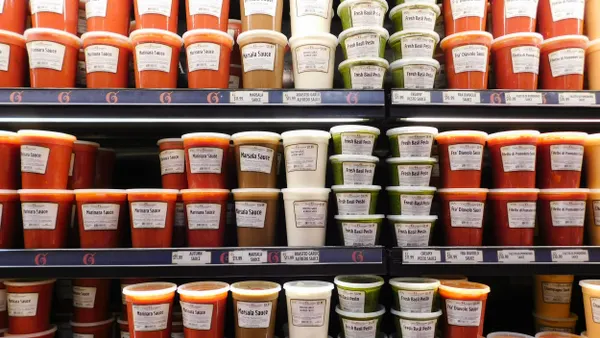Dive Brief:
-
App-based same-day delivery services for retailers and restaurants often have added fees and tips that significantly drive up the cost of items, according to research from Brian X. Chen, who writes for the New York Times “Tech Fix” blog.
-
Chen tested out services from Instacart, Postmates, UberEats, and Amazon Prime Now, ordering products and meals.
-
The markups, which Chen details in his description of all his orders from the four services, tended to be about 30%.
Dive Insight:
This assessment of the premium in same-day delivery displays a significant vulnerability in the same-day delivery space—the expense of convenience and instant-gratification.
Denser more urban areas are the most obvious places where same-day delivery services would thrive, and, for the most part, that's where they're being offered and tested. (Incomes tend to be higher for city dwellers, who might be willing to pay for such immediate gratification. And public transportation is more often a preferred mode of travel, making it a pain to shop for more than a small bag of groceries or even take-out.)
Continued expansion by delivery startups like Instacart and Postmates demonstrates the endurance of these services so far, though some kind of shake-out is likely some time in the future. But it’s not clear how lucrative these businesses, which continue to attract investor funding, will be in the long run.
Things could get more difficult if customers begin to see the premium as not worth it, or if the companies need to figure out ways to show an actual profit. That could mean that even higher premiums would be necessary, or expansion into less populated, less responsive areas.
“[I]f you don’t pay close attention to how these companies charge for their services, your money could disappear like magic,” Chen writes. “I discovered this firsthand when I tested four popular instant delivery apps over the last week to take a closer look at their fee structures.”














